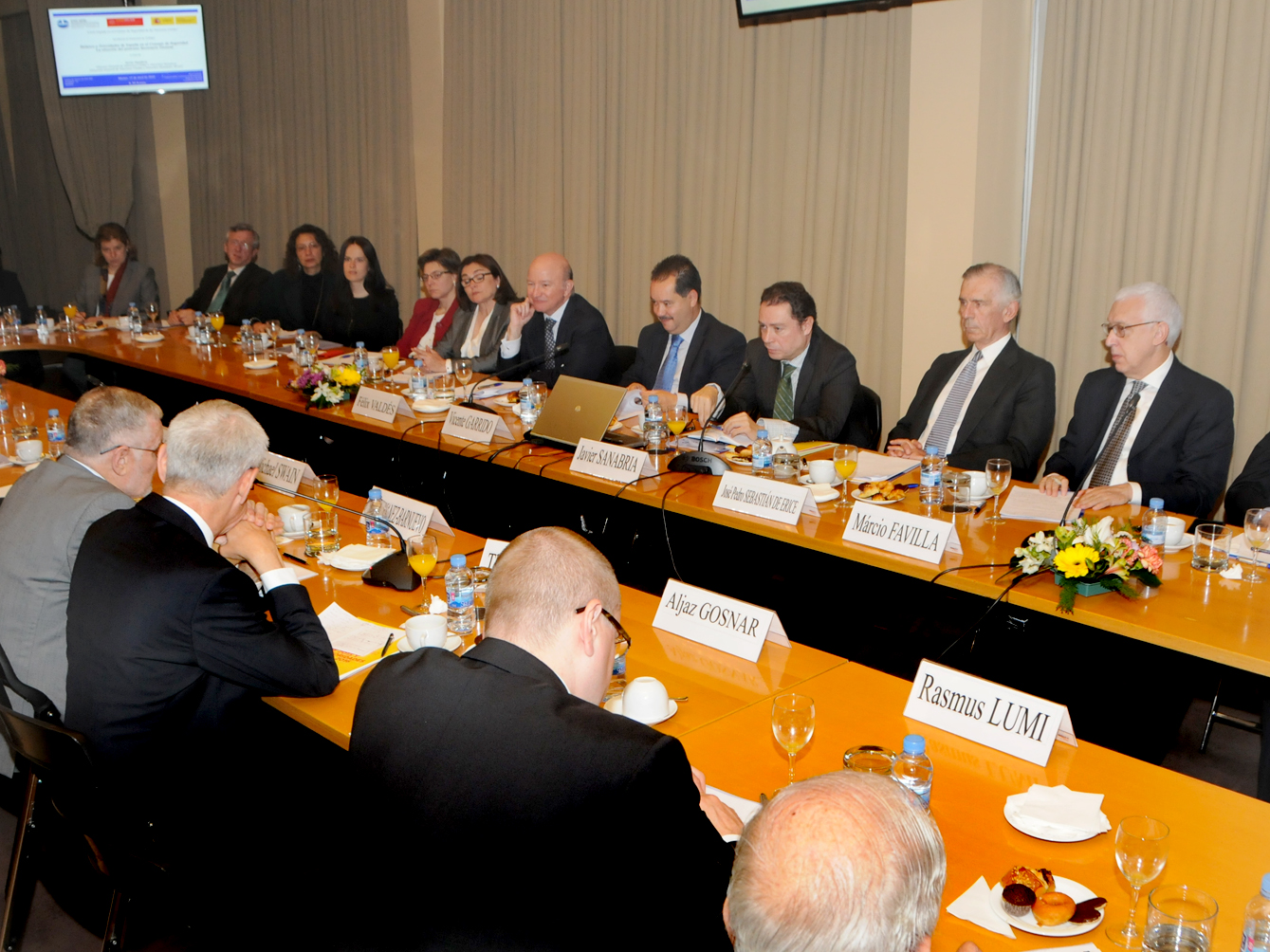Spain’s Balance and Priorities in the Security Council: The next Secretary General Election

On April 19, 2016, INCIPE held a Working Breakfast, titled Spain’s Balance and Priorities in the Security Council, The Next Secretary General Election, to discuss the current dynamics of the United Nations Security Council (UNSC) as well as the upcoming UNSC elections. The main speaker of the event was Mr. Javier Sanabria, Director General of the United Nations and Human Rights of the Spanish Ministry of Foreign Affairs and Cooperation (MAEC).
The United Nations proved active in 2015, a year of significant diplomatic events, with its participation in the Paris Agreement on climate change and the 2030 Agenda for sustainable development. Additionally, United Nations Security Council passed 64 resolutions: The Nuclear Deal with Iran (Resolution 2231) paves the way toward the end of sanctions and a new regime for the nation; Resolutions 2249 and 2253 aim to use all possible methods to combat the increased threat of terrorism, specifically against the Islamic State (Daesh) in the Middle Eastern region and Boko Haram in central and western Africa. The multilateral nature of these resolutions paired with the legitimacy added by the United Nations name makes their effectiveness promising.
Spain holds one of ten non-permanent member seats in the United Nations Security Council since 2015, and has over one year left of the two-year position. The country has showed a significant presence so far in the UNSC, maintaining a “penholder” position in negotiations with Afghanistan by directly writing agreements. Spain also played a major role in the UN’s Resolution 2242, which addresses women’s participation, peace, and security in peacekeeping operations which, by also including terrorism, addresses the multidimensionality of the issue and consequently increases its effectiveness. Additionally, Spain participated in the formulation of Resolution 2240, which aims to combat human trafficking, specifically the current migrant smuggling issue off of the Libyan coast.
Despite the past year’s progress, the UNSC must continue its momentum. While the UN recently reached several agreements regarding the ongoing conflicts in Libya and Syria, the situation in this area is far from acceptable. Conflicts in the Ukraine, North Korea, and the continued and increasing presence of terrorism all pose imminent threats to every aspect of international security. With respect to terrorism, the UNSC plans to update its Resolution 1540 from 2004 in December of this year in order to more effectively pursue its original goal of preventing weapons of mass destruction from reaching terrorist and non-state groups. The UNSC and the whole international community must also continue working collectively and multilaterally to counter climate change.
Elections this June will determine five new members of the UNSC for the 2017-2018 term, one of them a replacement for Spain. The UN hopes to have increased participation of non-permanent member and non-Security Council states in the selection of the new members. Other goals for the elections include higher transparency in the process and increased representation of women in the organization. Currently, nine non-specified candidates are in the running for the five open positions.
Members of various fields attended the Working Breakfast, including Ambassadors and representatives of several embassies, government affiliates, and international relations analysts. The event concluded with a questionnaire where attendees shared their perspectives on different topics, especially about the possible outcomes of the upcoming Security Council elections.
Maria Peurach
INCIPE

